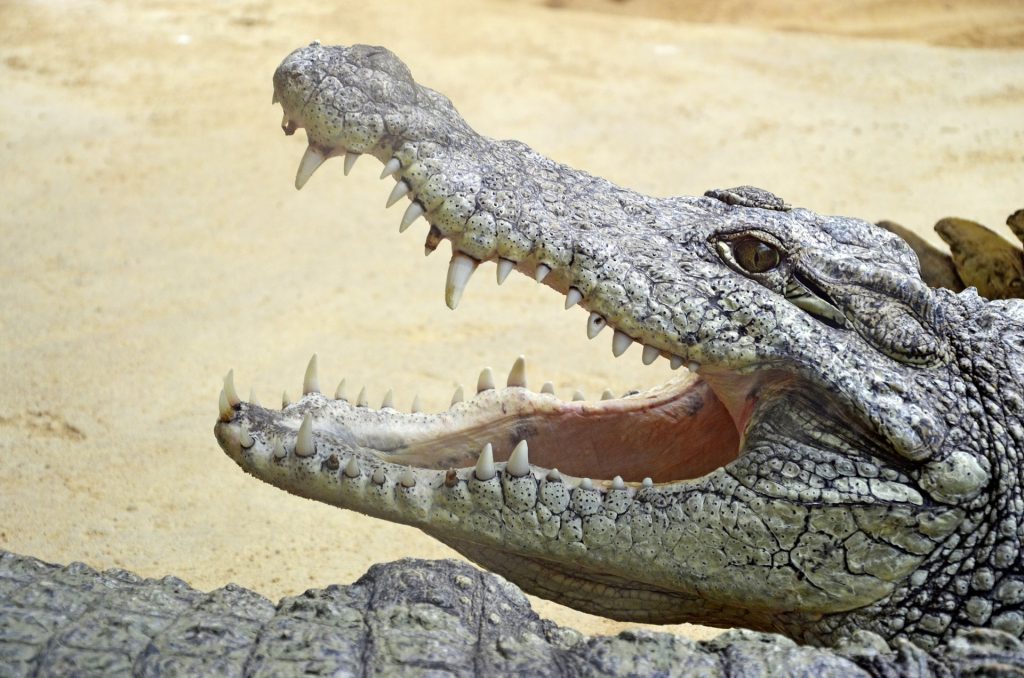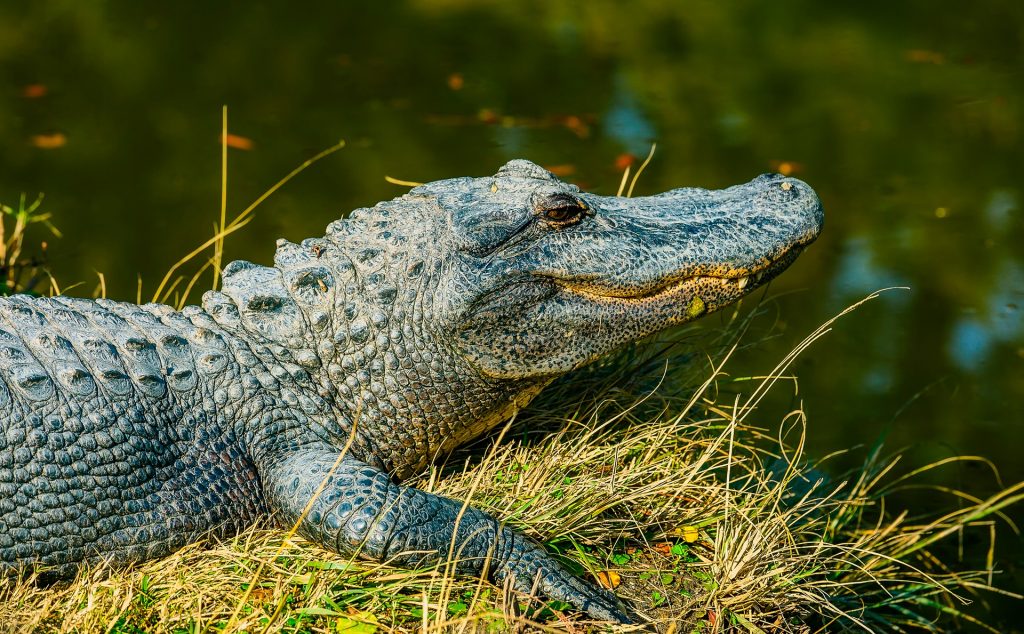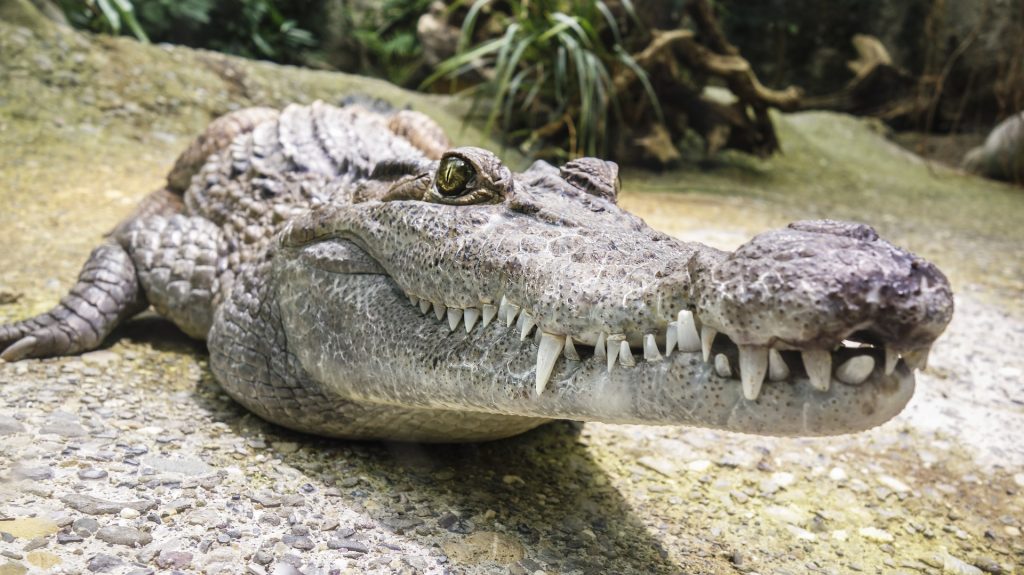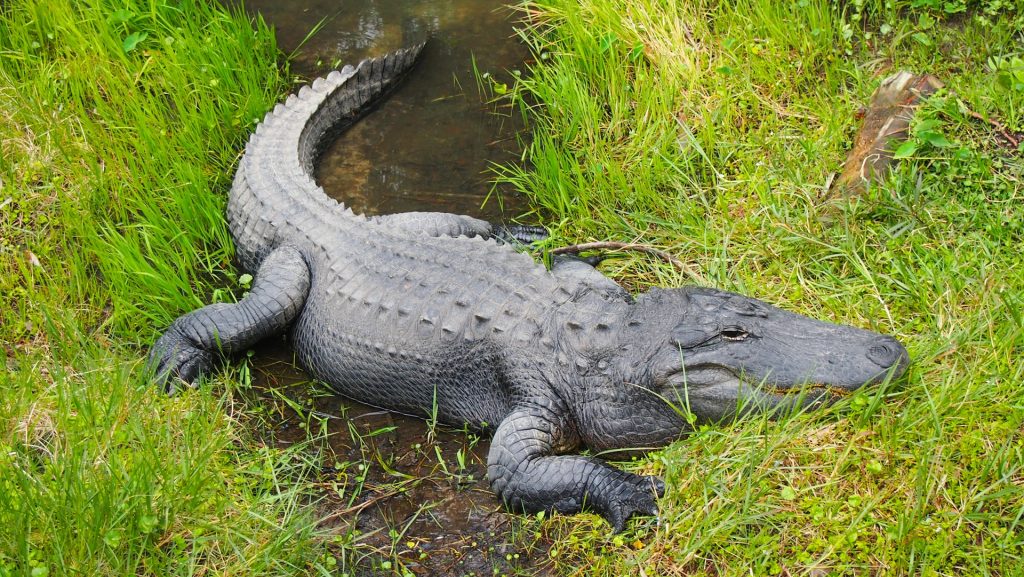Do you use the words “crocodile” and “alligator” interchangeably? Do you think they are the same animals with a different name or with just a few differences? Let’s find out how to distinguish them. Crocodiles and Alligators are reptiles that belong to the order Crocodilia, so when you refer to crocodiles, you probably mean Crocodilia. These animals, though, differentiate in the ranks that follow. Crocodiles belong to the Corcodylidae family, while alligators belong to the Alligatoridae family. The difference in their classification reflects the differences between these two animals. Crocodiles and Alligators have been present on our planet for 55 million years, and their ancestors probably lived at the same time as dinosaurs.
| Crocodile | Alligator | |
| Domain | Eukarya | Eukarya |
| Kingdom | Animalia | Animalia |
| Phylum | Chordata | Chordata |
| Class | Reptilia | Reptilia |
| Order | Crocodilia | Crocodilia |
| Family | Crocodylidae | Alligatoridae |
| Subfamily | Crocodylinae | Alligatorinae |
| Genus | Crocodylus | Alligator |


Similarities
Even though crocodiles and alligators belong to different families, they share a few similarities in their appearance and behavior. They have long snouts, short legs, and a powerful tail, which enables them to move quickly inside the water. Their eyes that are located on the top of their heads help them search the surrounding area for prey. As reptiles, they have a tough scaly skin, and they cannot regulate their body’s temperature. When they are young, they eat insects and fish. When they get older, they can eat larger animals, which they drag underwater to drown them.
On the right: Alligator (Image by Jake Heckey from Pixabay)
Differences
If you ever come across a member of the Crocodilia family, before you run on the opposite direction to hide, take a moment to inspect whether it is a crocodile or an alligator based on the following differences:
- Snout shape
Crocodiles have pointed snouts, shaped like a V, whereas alligators have a wider, U-shaped snout.
- Toothy grin
In the case of alligators, the upper jaw is wider than the lower jaw, so when their mouth is shut, the lower teeth are hidden. However, crocodiles cannot hide their teeth because their upper and lower jaws are about the same width. As a result, when their mouth is closed, many teeth are visible, creating a toothy grin. The fourth lower tooth, especially, sticks out over the lip.
- Color
Crocodiles have a lighter color than alligators. Crocodiles tend to be tan or olive color, whereas alligators are grey or black.
- Size
Size varies among species. The average size of a crocodile is 5 meters, but some of them might grow to 7 meters long. Alligators are smaller than crocodiles. The average size of the American alligator is 4 meters, while the Chinese alligator is even smaller, around 2 meters.
- Habitat
Crocodiles live in salty water habitats, while alligators prefer freshwater areas. Crocodiles can tolerate excess salt because of the presence of glands on their tongues that excrete the salt from their bodies. These glands are also present in alligators, but they don’t work that well.
- Location
Alligators are only found in the southeastern US and eastern China. Crocodiles live in many regions across the world in Africa, Australia, Southeast Asia, North America, South America, and Central America. However, the only place where you can find both crocodiles and alligators is Southern Florida. Also keep in mind that even though crocodiles spread across North America, they are very few compared to alligators that are limited in the southeastern US. It is estimated that there are more than 3 million alligators and fewer than 2000 crocodiles.
- Behavior
Crocodiles are aggressive animals that will attack everything in their way, even unprovoked, humans included. The Australian crocodiles that live in saltwater are the most dangerous in the world. American crocodiles are much less aggressive, and they rarely attack humans. On the other hand, alligators are more timid and passive than crocodiles. They only attack when provoked, and they usually try to escape if approached by humans. However, in the US there is a higher chance for a human to be attacked by alligators than by crocodiles.
- Speed
Crocodiles are slower than alligators either when on land or in water, but they both move faster in the water. On land, crocodiles might reach a maximum speed of 14 kph and alligators about 18 kph. When they swim, crocodiles can acquire a speed of 15 kph, while alligators can reach a speed of 32 kph.
Sources:
https://www.britannica.com/story/whats-the-difference-between-alligators-and-crocodiles
https://owlcation.com/stem/Whats-the-difference-between-alligators-and-crocodiles
https://animals.howstuffworks.com/reptiles/alligator-vs-crocodile.htm


